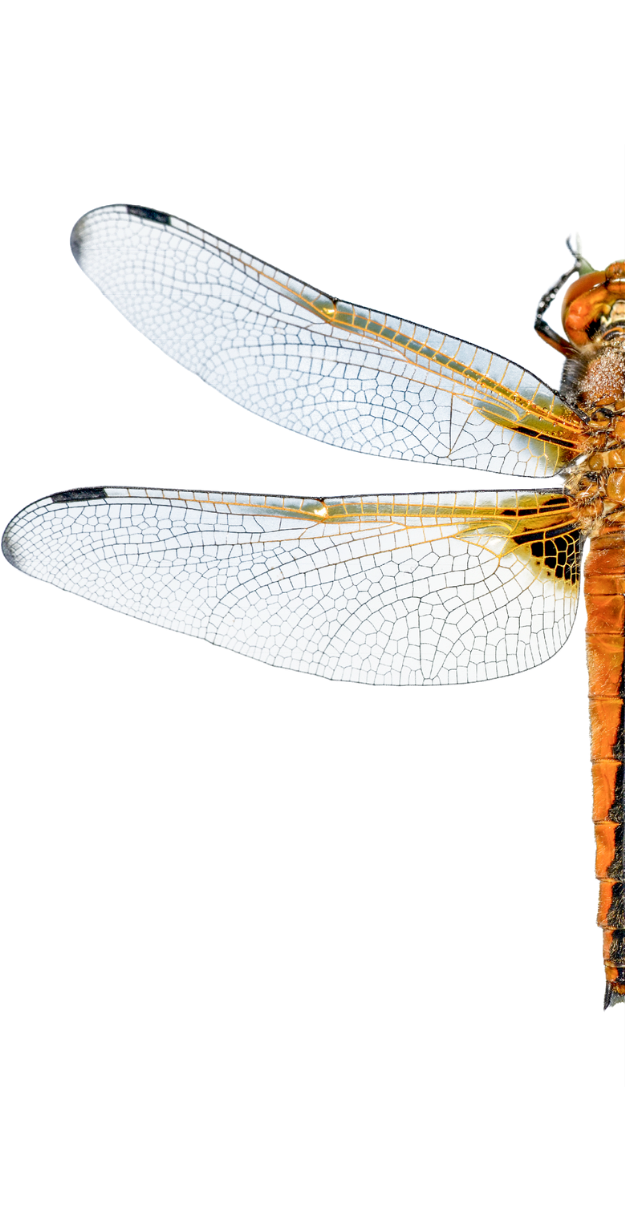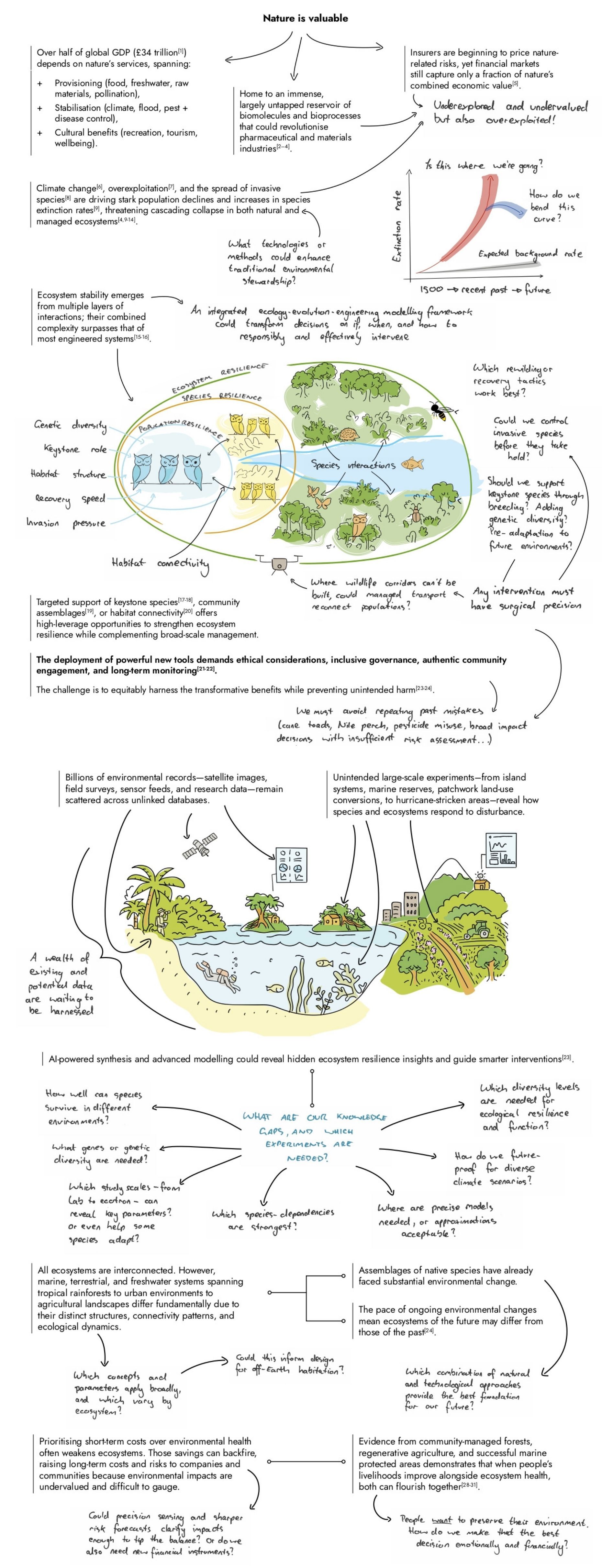What if we could engineer resilient ecosystems that enable both humanity and nature to thrive?
Defined by our Programme Directors (PDs), opportunity spaces are areas we believe are likely to yield breakthroughs.
In Engineering Ecosystem Resilience, we're asking if combining high-resolution measurement with targeted, resilience-boosting interventions could reverse biodiversity decline and prevent ecological collapse.
Beliefs
The core beliefs that underpin this opportunity space:
With ecosystem degradation accelerating globally, humanity’s most vital unsolved technical capability is engineering ecosystem resilience → success could pave the way towards unparalleled human and planetary prosperity.
Our tools to measure, predict, and manage ecosystems are insufficient → effective stewardship demands proactive deployment of fit-for-purpose technologies.
Ecosystems are complex adaptive networks where small changes can have outsized effects → with the right tools, we can design highly effective interventions that are both ethical and environmentally responsible.
Converging advances in high-throughput genomics and prediction, gene editing, accelerated evolution, robotics, novel sensors, and AI analytics → together unlock a new integrative paradigm for engineering ecosystem resilience.
Programme: Accelerated Adaptation
To build a programme within an opportunity space, our Programme Directors direct the review, selection, and funding of a portfolio of projects.
Backed by £54m, our Accelerated Adaptation programme seeks to explore potential pathways to accelerate the adaptation of wild species in order to prevent biodiversity loss and secure the natural infrastructure that underpins our global economy and well-being.
We are now seeking concept papers from interdisciplinary teams bridging fields like ecology, evolution, biological engineering, conservation, ethics, robotics, and AI.
Opportunity seed funding - now closed
Outside of programmes, we award seed funding to individuals or teams pursuing research aligned with our opportunity spaces. With smaller budgets and less structure than programmes, seeds support researchers to uncover new pathways that might otherwise fall through the cracks.
This call looks to fund high potential proposals with up to £500,000 each. We initially expect to fund around 10 opportunity seeds in this space.
Proposals should either align with or challenge the assumptions of the Summary, Beliefs, or Observations in this opportunity space, but sit outside of the scope of the Accelerated Adaptation programme thesis.
Resources
Sign up for updates
Stay up-to-date on our opportunity spaces and programmes, be the first to know about our funding calls and get the latest news from ARIA.


